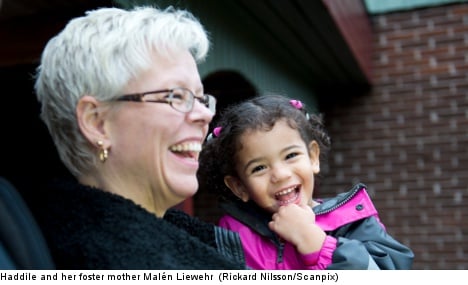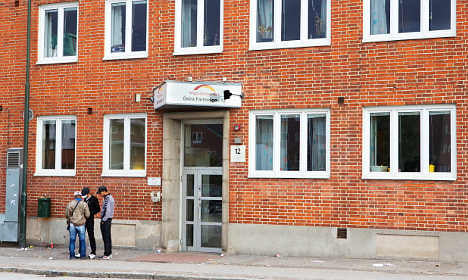“According to the Migration Court of Appeals it is not in the child’s best interest under the current circumstances to deport Haddile to France,” the court said in a statement shortly after the decision was made public.
The court explained that the Swedish Migration Board (Migrationsverket) had not taken conditions in Algeria into account when determining what would be in the Haddile’s best interests.
The court also requested that social services carry out an investigation into who exactly the girl’s biological parents are and explore whether a family reunification might be possible.
The case of 2-year-old Haddile, who was abandoned by her mother shortly after her birth and then allegedly abused by her stepfather before being taken in by foster parents, has outraged and captivated Swedes.
The girl’s mother, who is Algerian but has French citizenship, disappeared 20 days after giving birth at a hospital in Lund in the south of Sweden.
Haddile’s step-father took care of her when the mother disappeared but he was accused of abuse after the baby girl was admitted to hospital with serious brain damage at the age of four months.
The child then ended up in foster care and her foster parents have said they are willing to adopt her.
“She came to us like a little broken-winged bird. By now it really feels as if she is ‘my’ little girl,” said foster mother Malén Liewehr to TT.
Despite all that befell the little girl as a baby, she has developed over all expectation:
“She walks and speaks like a three or even four-year-old,” Liewehr told TT.
A move by the Migration Board to deport the child to France in an effort to reunite her with her mother resulted in a petition signed by tens of thousands of Swedes, prompting the agency to put a temporary delay on their deportation decision as the search for her parents continued.
At the end of September, reports came in of the mother having been identified. She is now living in Algeria and working as a teacher. She wants her daughter back.
“My first and only wish is to have my daughter back,” the woman said to daily Aftonbladet in September.
While the case is complicated from a legal perspective, there is a strong case to be made that Haddile’s strong emotional ties stemming from her relationship with her foster family means their relationship is covered by the UN Convention on the Rights of the Child, explained legal scholar Maarit Jänterä-Jareborg to TT in September.
“We have more hope now. We have the utmost faith in the social services and that it will be making a thorough investigation. We also hope that it will be looking into conditions in Algeria when it comes to human rights, how women are treated and the situation for children born outside of wedlock,” Liewehr told TT.
The Local/rm



 Please whitelist us to continue reading.
Please whitelist us to continue reading.
Member comments